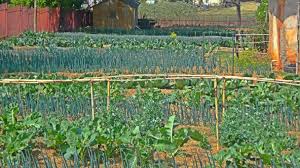To maintain food and nutritional security for African populations, it is necessary to promote urban agriculture that looks beyond crises such as the one caused by the Covid-19 pandemic, if recommendations by Senegalese researcher Sidy Tounkara are anything to go by.
By Edouard Touré
“Based on the multiple functionalities of urban agriculture, including supplying cities, not specifically in times of crisis but also in normal times, it is preferable to legitimise urban agriculture within the framework of a territorial food policy beyond crises. This agriculture must be part of a logic of reinforcement and complementary agriculture to achieve food and nutritional security in cities, with rural agriculture obviously at the helm,” Tounkara remarked.
In a scientific article entitled “The Covid-19 pandemic: legitimising the promotion of urban agriculture,” the researcher at the Initiative Prospective Agricole et Rurale (IPAR) warned, however, that urban agriculture is under serious threat from Covid-19.
In his opinion, despite its crucial usefulness, especially in times of crisis, demographic and urban growth and its corollaries pose significant risks to the maintenance of agriculture in cities.
“This population growth in cities necessarily has impacts on land and water, which non-agricultural uses (domestic, industrial, basic socio-economic infrastructures) compete directly with agricultural uses (agricultural land, irrigation water),” Tounkara pointed out.
He added that population growth in cities also has an impact on the availability of and access to water for crop irrigation, especially in a context of climate change, which contributes to the disruption of the rainfall cycle, but also to the drop in the water table, which is exploited by urban market gardeners.
CP/te/lb/as/APA


